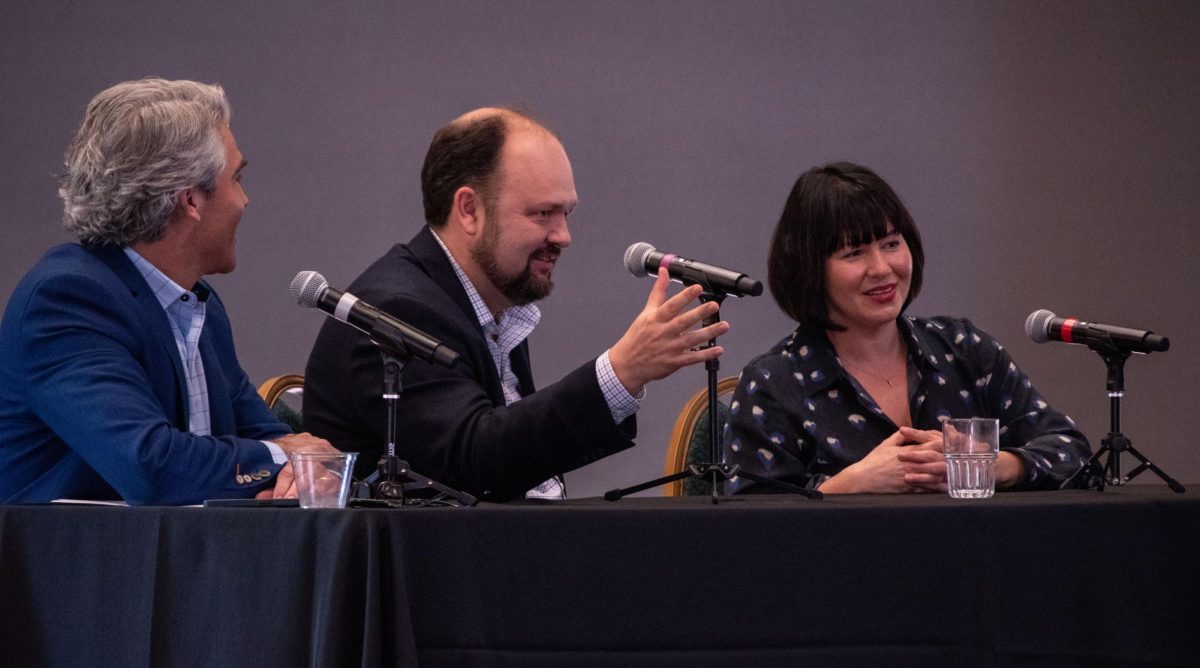Discussions of the potentially doomed future of liberalism led the closing keynote dialogue at the Civil Discord Symposium on Friday.
Ryan Streeter, executive director for research at the Civitas Institute, moderated the dialogue between New York Times opinion columnists Ross Douthat and Michelle Goldberg. Liberalism is a philosophy focusing on individual autonomy and social equality.
Goldberg acknowledged the difficulties of sustaining liberalism during a time of social upheaval but said it is an integral part of society as it allows people to enjoy personal freedoms regardless of political views.
“All of the things that liberalism promises is a huge burden at a time when there’s enormous economic precarity, there’s enormous social atomization,” Goldberg said. “(But) nobody has come up with an alternative to liberalism that most of liberalism’s critics could tolerate living under.”
Douthat said he believed liberalism would prevail regardless of political leadership as it is woven into American identity.
“Liberalism, in some form, is deeply written in our cultural DNA,” Douthat said. “At the end of the day, I have a certain amount of confidence that there’s this strong American default to liberal individualism that would still survive on the far side of some sort of crisis of governance.”
The speakers also touched on liberalism on college campuses, where Goldberg said she believes state policies have decreased the academic freedom of professors.
“What you’ve seen on campuses is some silence of argumentation and obnoxiousness and closed mindedness — some of it exacerbated by the Internet and exacerbated by the involvement of outside groups,” Goldberg said. “That has been both caricatured and then used as a pretext for a much more serious government crackdown on speech from the right.”
Douthat focused on the impact of university policies and said such policies have restricted expression of centrist and conservative views on campus.
“Many schools … have tacit ideological litmus tests for new faculty in the form of diversity statements and related things that are functionally McCarthyite in their implications for academic freedom and intellectual diversity,” Douthat said.
Despite their different opinions, the speakers both highlighted the threat social media poses to liberalism.
“The one thing we probably are in almost total agreement is about the socially corrosive effects of social media and the logical chaos that it creates,” Goldberg said.















